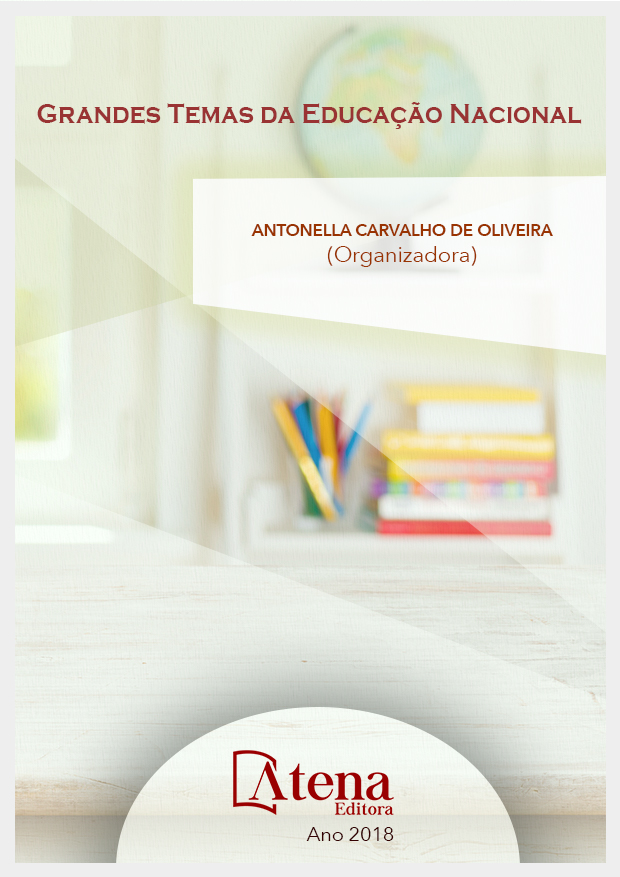
A DESCONSTRUÇÃO DO DIREITO DA CRIANÇA BRINCAR NO SÉCULO XXI
Há diversos fatores que afastam
as crianças do ato de brincar na infância,
embora este ato seja um direito assegurado em
termos legais e educacionais na perspectiva
do desenvolvimento humano, o que inclui a
aprendizagem. Atualmente, depara-se com uma
infância que pouco brinca, pois as mudanças
na sociedade afastam as crianças de tal
atividade, limitando-as a pequenos espaços o
que dificulta a exploração do mundo por meio
de brincadeiras. Hoje em dia, as crianças estão
substituindo as brincadeiras por uma sobrecarga
de atividades, sejam elas exigidas pelos pais ou
pelas escolas, sejam através do trabalho infantil
ou demais situações que tiram seu tempo de
brincar. A temática do brincar é amplamente
discutida no meio acadêmico, porém não é
valorizada de forma contundente em termos
pragmáticos pelas instituições familiares,
escolares e pelo poder público. O objetivo
principal desta pesquisa é contextualizar a
desconstrução do ato de brincar, considerando
os novos paradigmas da sociedade do século
XXI. Esta pesquisa é de cunho bibliográfico
com fontes que destacam o ato de brincar na
vida das crianças como ação promotora de
seu desenvolvimento e, portanto, de diversos
tipos de aprendizagem, além de fontes que
tratam da desconstrução do brincar no século
XXI, apontando como os adultos estão lidando
com a infância e como as brincadeiras fazem
parte da vida das crianças atualmente. Concluise que a efetivação do direito de brincar pela
criança é garantida, prioritariamente, através
da mediação do adulto, envolvendo família,
escola e poder público, na disponibilização de
espaços, tempo e materiais adequados para a
criança usufruir das diversas formas de brincar.
A DESCONSTRUÇÃO DO DIREITO DA CRIANÇA BRINCAR NO SÉCULO XXI
-
DOI: Atena
-
Palavras-chave: Desconstrução. Brincar. Criança. Mediação.
-
Keywords: Deconstruction. Play. Child. Mediation.
-
Abstract:
There are a number of factors
that keep children from playing in childhood,
although this act is a legally and educationally
guaranteed right from the perspective of human
development, which includes learning. At the
moment, it is faced with a childhood that little
plays, because the changes in the society
take away the children of such activity, limiting
them to small spaces which makes difficult the
exploration of the world by means of jokes Nowadays, children are replacing the games with an overload of activities, whether they
are required by parents and schools, whether through child labor or other situations
that take their time to play. The theme of play is widely discussed in the academic
world, but it is not valued in a pragmatic way by family, school and public institutions.
The main objective of this research is to contextualize the deconstruction of the act of
playing, considering the new paradigms of 21st century society. This research is based
on bibliographical references with sources that highlight the act of playing in children’s
lives as a promoter of their development and, therefore, of different types of learning,
as well as sources that deal with the deconstruction of play in the XXI century, pointing
out how the adults are dealing with childhood and how play is part of children’s lives
today. It is concluded that the realization of the right to play by the child is guaranteed,
as a priority, through the mediation of the adult, involving family, school and public
power, in the provision of adequate spaces, time and materials for the child to enjoy
the various forms of play.
-
Número de páginas: 15
- Isabela Gonçalves de Oliveira


